An Iranian refugee fought for years to get to America. Now he asks why he’s here
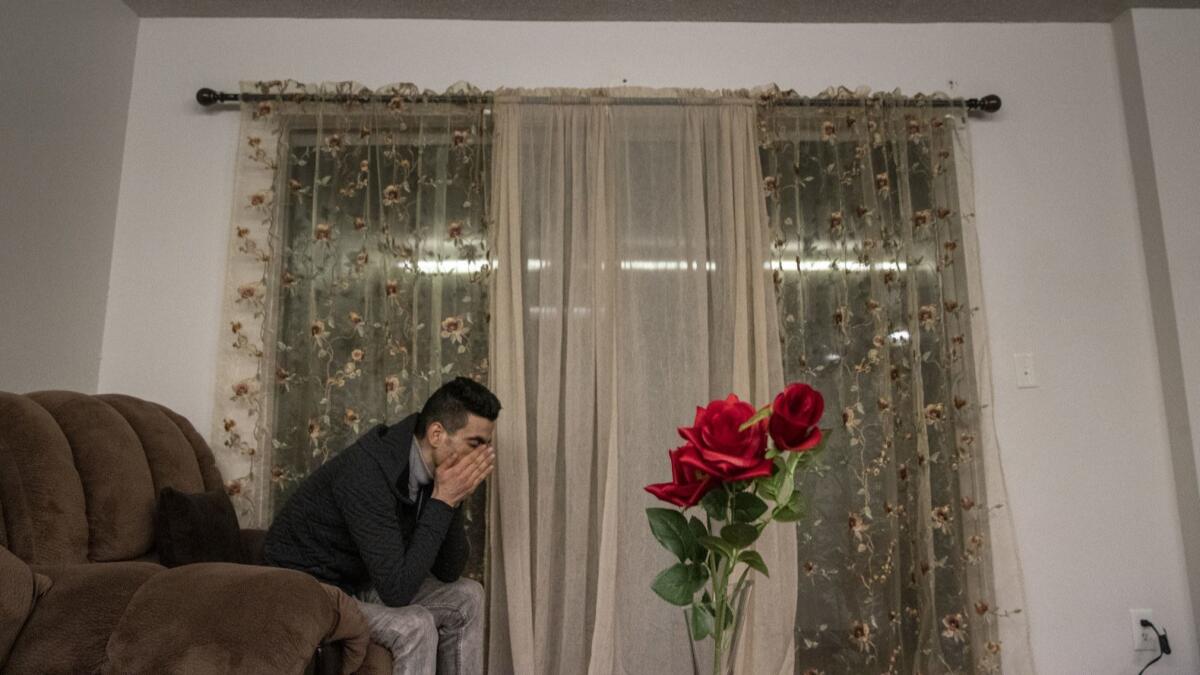
- Share via
Reporting from Kent, Wash. — Sirvan Moradi doesn’t feel right.
He knows he should be relieved to be in America. He knows he should be grateful to have escaped Iran, where his family was under threat for following a faith the government calls a “false cult.” He knows he should be happy to be out of Turkey, where he had asylum but was shut out of jobs and faced taunts and slurs for being a refugee.
He knows this part of his journey should be the best one — living in a suburban Seattle apartment, learning English, starting a new job and trying to make friends in a place that has embraced him.
But mostly he feels anguish.
“I’m not happy, but I’m not sad,” says Moradi, 25. “My dad is gone. My family is in Turkey. I’m here.”
Moradi, who moved to Kent this year with his aunt, is one of just 103 Iranian refugees to arrive in the U.S. over the last seven months. He is among 12 who have settled in Washington state. Before the Trump administration made deep cuts to refugee resettlement programs, thousands of Iranians came to the U.S. each year, and hundreds made Washington their home.
In an era when strict quotas and at times vague government restrictions have knocked the U.S. from its long-standing place as the nation that takes in the most permanent refugees, Moradi’s case is an example of how changes to the system have resulted in confusion and families being split apart.
It used to take most refugees 18 months to two years from their application with the United Nations to their arrival in the U.S. It took Moradi four years.
Three times since 2017, Moradi and his family — father, mother, brother, sister and aunt — were issued plane tickets to the U.S. from their temporary home in Turkey. Three times the tickets were canceled without explanation while federal court cases over Trump’s travel ban loosened and tightened the flow of refugees.
Doctors in Seattle were ready to treat his father, Seid Moradi, for a bulging blood vessel by his heart. But in September, he collapsed on his balcony in Kayseri, Turkey, where the family lived in a one-bedroom apartment. He died at 54, four years after fleeing his hometown and 15 months after first being told he could live the rest of his days in the United States.
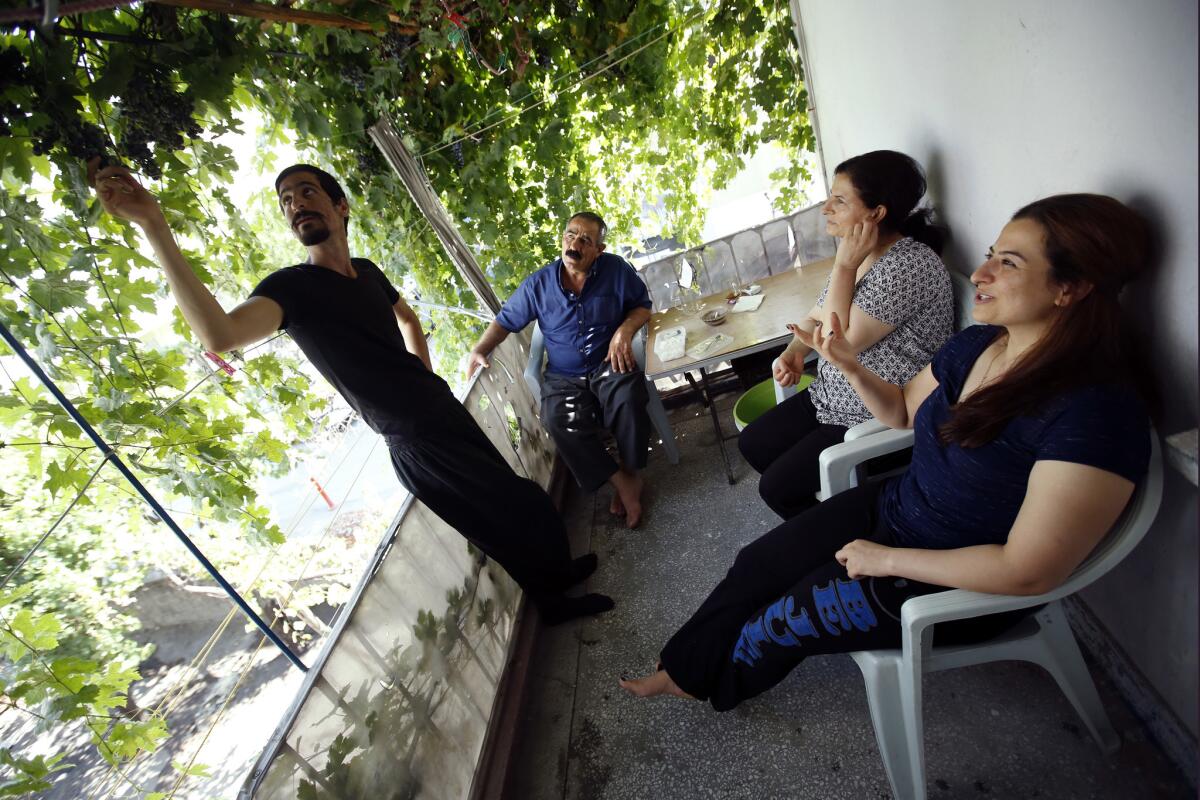
Seid was the main refugee applicant for most of the family, and his death did more than devastate them. It meant the others — whose clearances from the U.S. government were set to expire — would have to re-apply on their own. With restrictions now placed on Iranians, the chances of getting in were slim, even for members of the Yarsan faith, a syncretic tradition with roots in 14th-century Iran.
“It’s anyone’s guess who will be approved to come to the U.S. these days,” said Nicky Smith, who directs the Seattle office of the International Rescue Committee, which prepared for years for the Moradis’ arrival. “As a family that is an ethnic and religious minority and with a person who had a medical condition, they would have been put at the top of the list in past years.”
That’s not the case anymore.
This winter, Sirvan Moradi and his aunt, Saltanat Moradi, were handed airline tickets to the U.S. It’s unclear why they were approved and the rest weren’t; a State Department spokeswoman declined to comment on individual refugee cases.
Just past midnight on Feb. 6, the travelers landed in Seattle after two flights totaling 17 hours from Istanbul, Turkey. It was snowing.
Sirvan tried to smile at the social worker who greeted him, but he couldn’t manage it. His face was blank, his emotions a tangle of relief, guilt, homesickness.
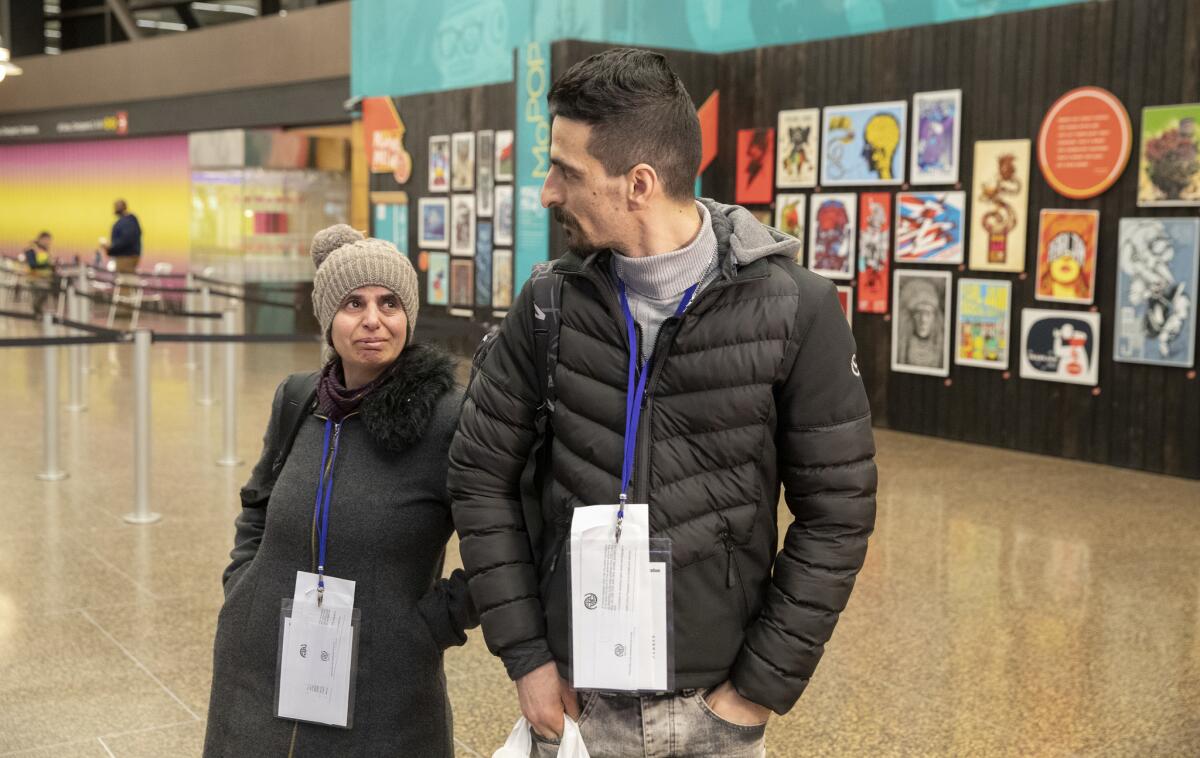
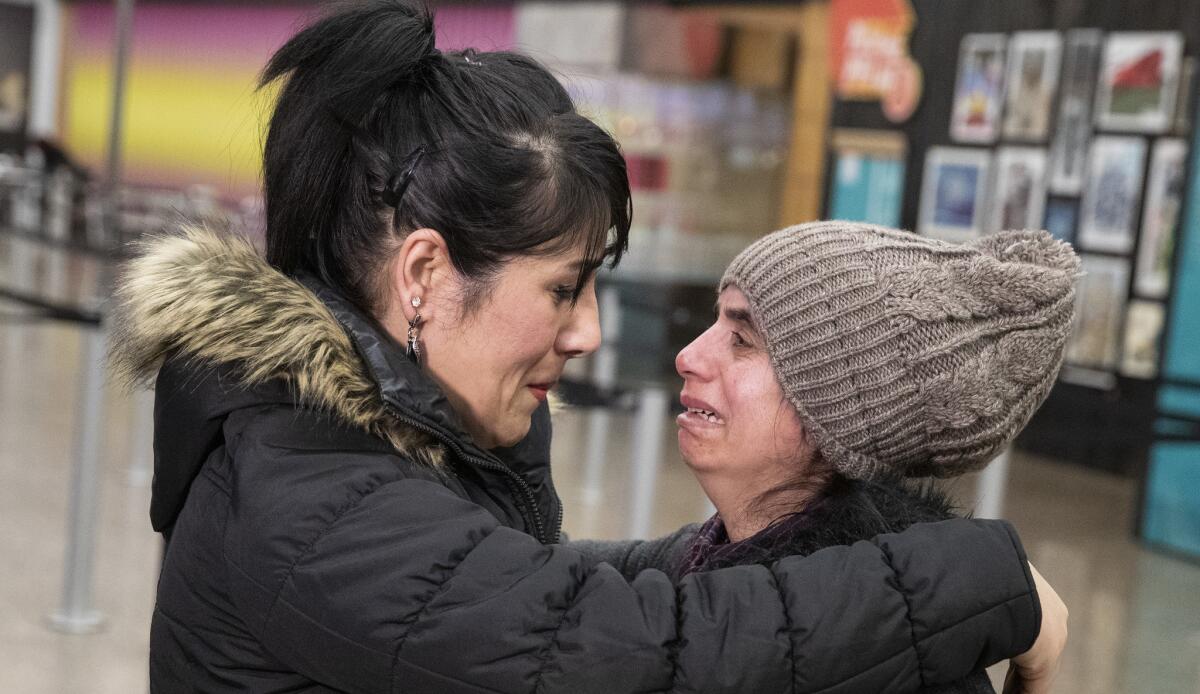
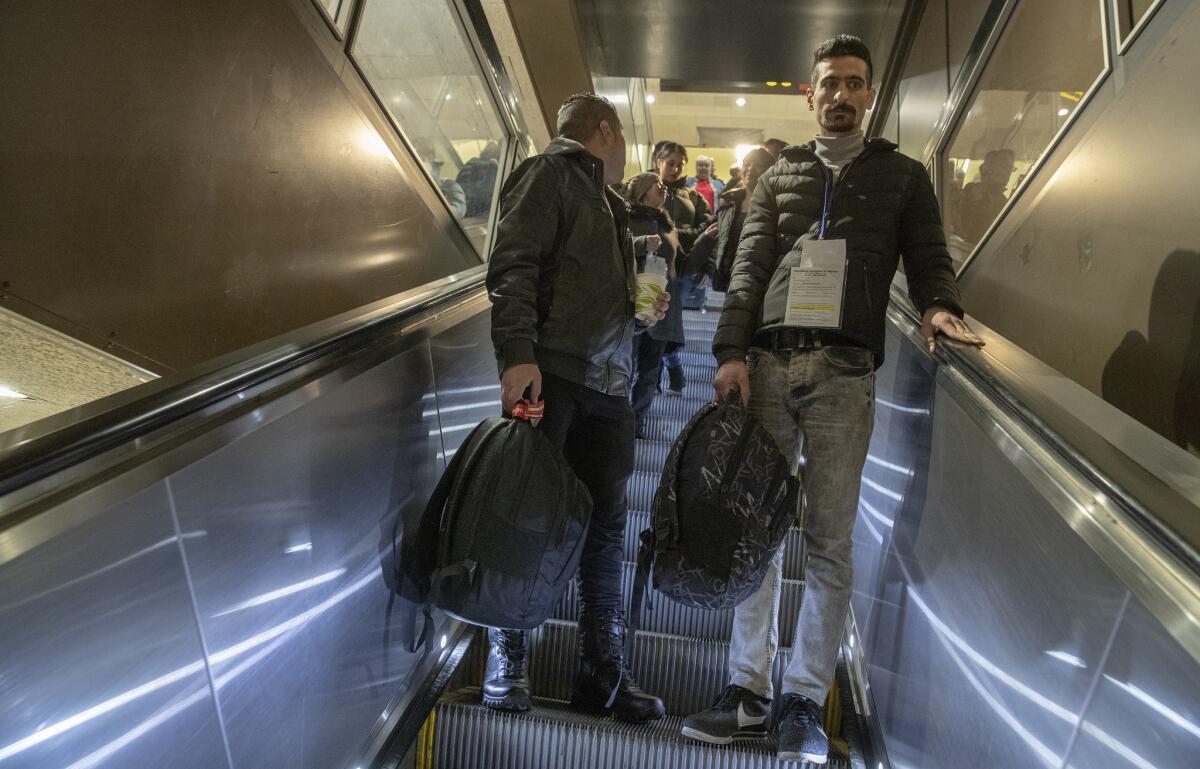
Saltanat began to cry. Two former neighbors, refugee friends from Turkey, came to meet them and ran in for hugs.
“Don’t worry, all your troubles are behind you,” Masoud Veysi told them. He had made the same trek with his girlfriend 3½ years ago.
“My sister is the only person I have in the world,” Saltanat said as she wailed, speaking of Sirvan’s mom. “I’m sad I had to leave her.”
Nadia Mousavi, Veysi’s girlfriend, held Saltanat’s head to her chest. “Your sister will come,” she assured her.
Sirvan and Saltanat stayed with their friends that night. Mousavi cooked Iranian food to make them feel at home — saffron rice topped with pomegranate and khoresht lubia sabz, a green bean stew. She put out a platter of pistachios and naan berenji, rice cookies topped with poppy seeds.
But the Moradis barely ate. Sirvan stayed up for hours. He called his mom over and over on WhatsApp, finally letting out his tears.
“I’m alone here in a country where I’m supposed to start a new life,” he told his mother, Fanoos Moradi. He had never lived without her.
Fanoos was happy yet heartbroken.
“Your father died. No one is helping; we don’t have anyone,” she told him. “You’re not here. You used to talk to me so much. Now you won’t.”
Sirvan promised he would call every night.
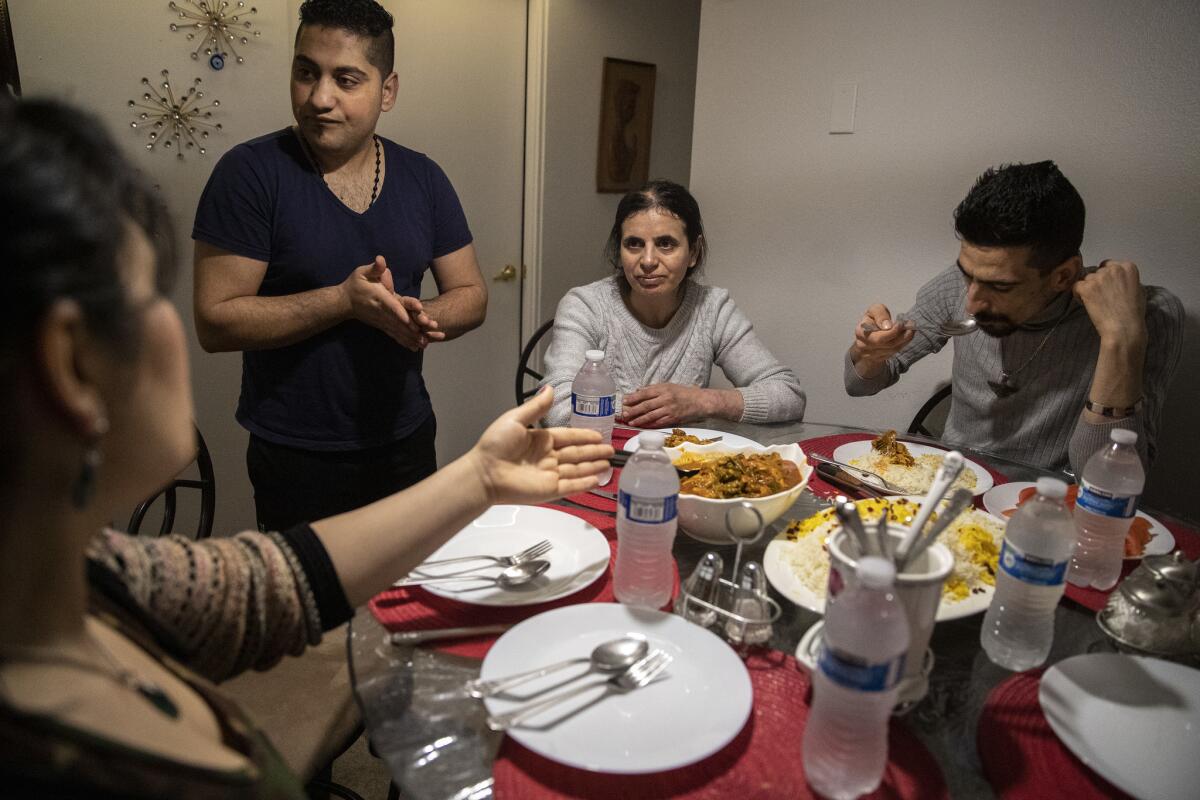
The next day, the refugees had an orientation with their caseworker. They saw their new home, a two-bedroom apartment. Unlike in Turkey, the paint wasn’t chipped, the walls weren’t stained and the carpets were new. The streets outside were quiet.
A worker from the resettlement agency set up free furniture: two single beds, a plastic dining table and four chairs, pots, pans and a lamp. It would cost Sirvan and Saltanat $1,285 per month in rent. They’d each get $1,100 from the federal government to cover their initial expenses, and could apply for more money from the state.
Sirvan had just two questions: When could he start taking English lessons? And how could he hook his cellphone up to an American plan?
“It feels like a lot of time has passed and none has passed at all,” Sirvan says of the three months since then. “My body is in America but my mind is in Turkey.”
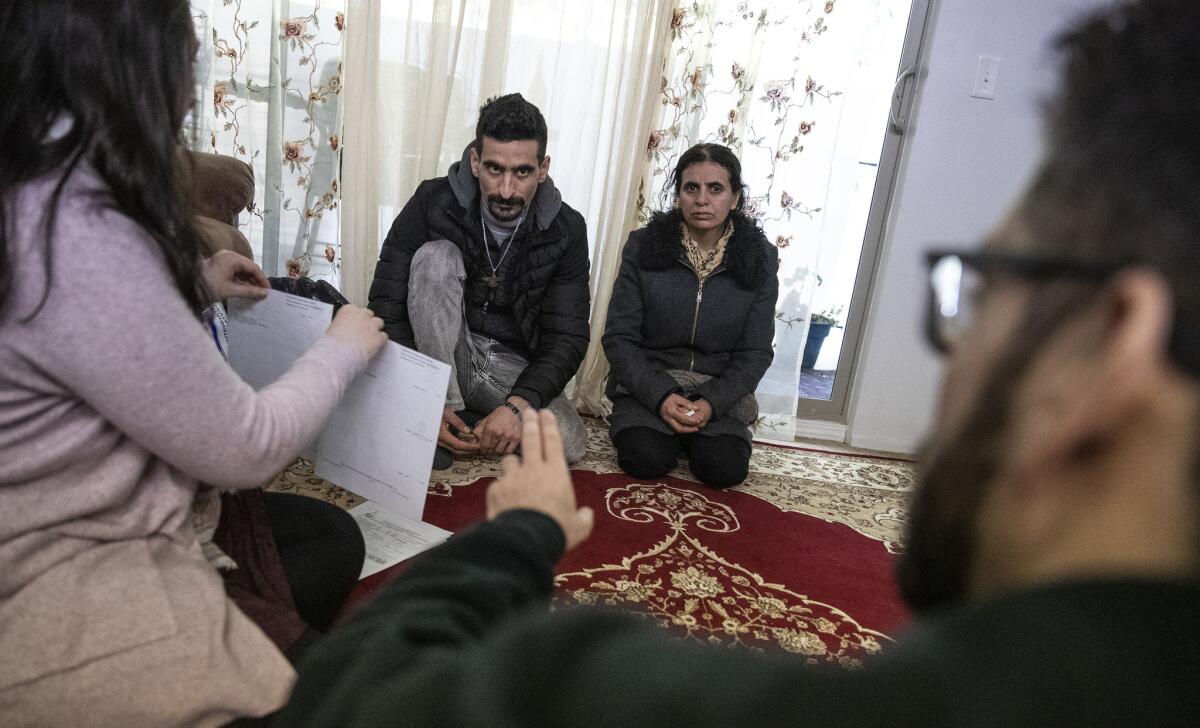
He used to work in a clothing factory and as a forklift driver in Turkey. This month, he was hired at Cascade Gasket & Manufacturing Co., a factory that makes rubber parts for Boeing. A neighbor who works there told him of the opening. The man, an Arab, is one of many refugees, including those from the Democratic Republic of Congo and Afghanistan, in their apartment complex. The Moradis are the only Iranians.
The job is a 10-minute drive, but it takes Sirvan nearly an hour between a bus ride and walking before he arrives at 6 a.m. Over four 10-hour days a week, he makes $560 before taxes; he won’t keep most of it.
“I have to send money to my mom,” he says. “I’m just happy to help them.”
Saltanat, 45, used to work as a dessert baker in Turkey. She held no job in Iran. Social workers have encouraged her to find one in Seattle. She’d rather stay in the apartment.
“I’m happy to be at home because all I want to do is cry,” she says.
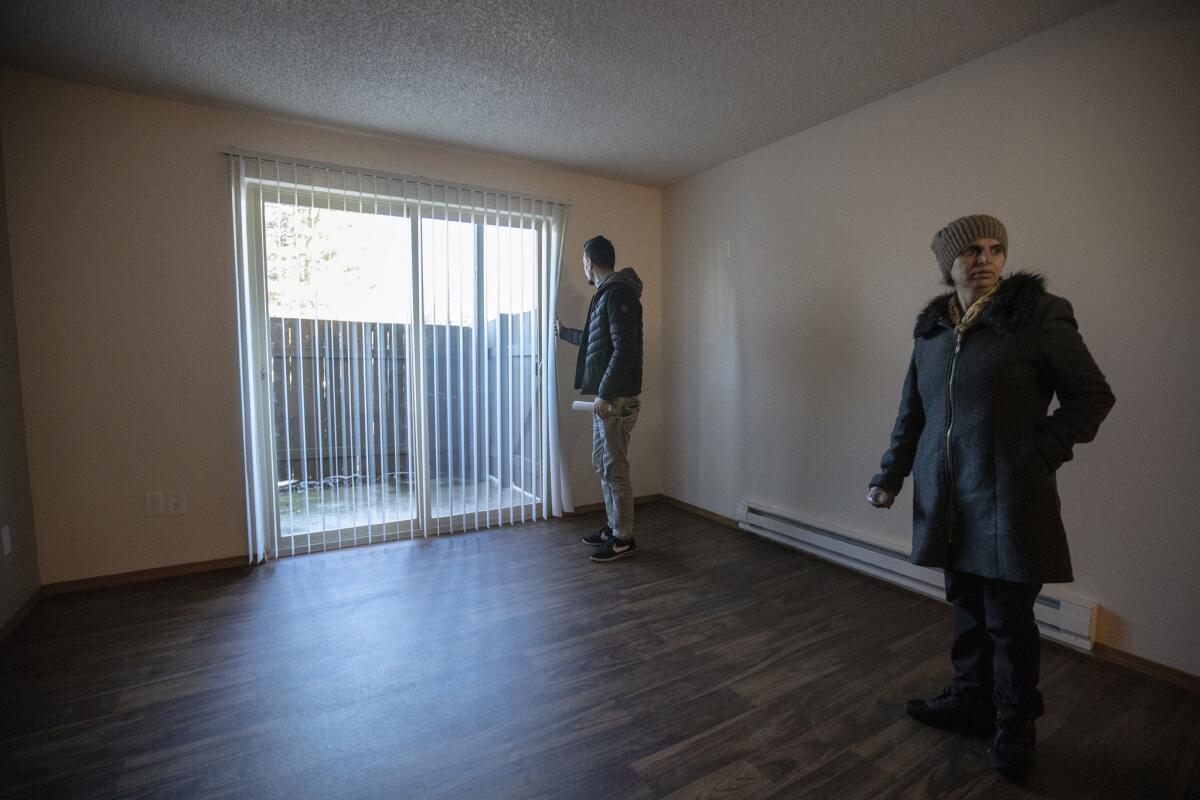
Twice a week, the two walk down the street to a language center to take an English class with other refugees. Veysi convinced Sirvan to join an Iranian soccer team that plays once a week. Saltanat stays home to cook, trying to recreate dishes that her sister perfected, like zereshk polow, a layered rice cooked with barberries, onions, almonds, orange peel and saffron. It reminds them both of home.
“She hates that she can’t cook for her sister,” Sirvan says.
To keep in touch with friends back home, Sirvan opens up Instagram.
“A new me coming soon,” he posted a week after landing in the U.S., with an image of a battery bar that was nearly recharged. Every few weeks, he uploads a variation on the same photo of himself in his white soccer shorts and jersey, standing on the field — sometimes giving a “thumbs up.” He broadcasts live on Instagram as he rides along on Veysi’s Uber drives, documenting his explorations of suburban Seattle to the sounds of Kurdish pop.
Recently, U.S. officials told him that the rest of the family — his mother, 26-year-old sister and 22-year-old brother — were approved to move to Kent, but no flight tickets have been issued.
Fanoos, 47, is not hopeful. “Maybe within three months I can come? When I heard this news I was still upset because I was promised a flight before.”
She rarely leaves the apartment in Turkey since her husband’s death. She prays for him and her daughter Fateme, who died at 27 when an earthquake hit their hometown in 2017. Sirvan’s sister Delnia and brother, Saman, work odd jobs sewing clothing to support the household.
The green roller bags their father packed for his journey to the United States still stand in a corner of the apartment.
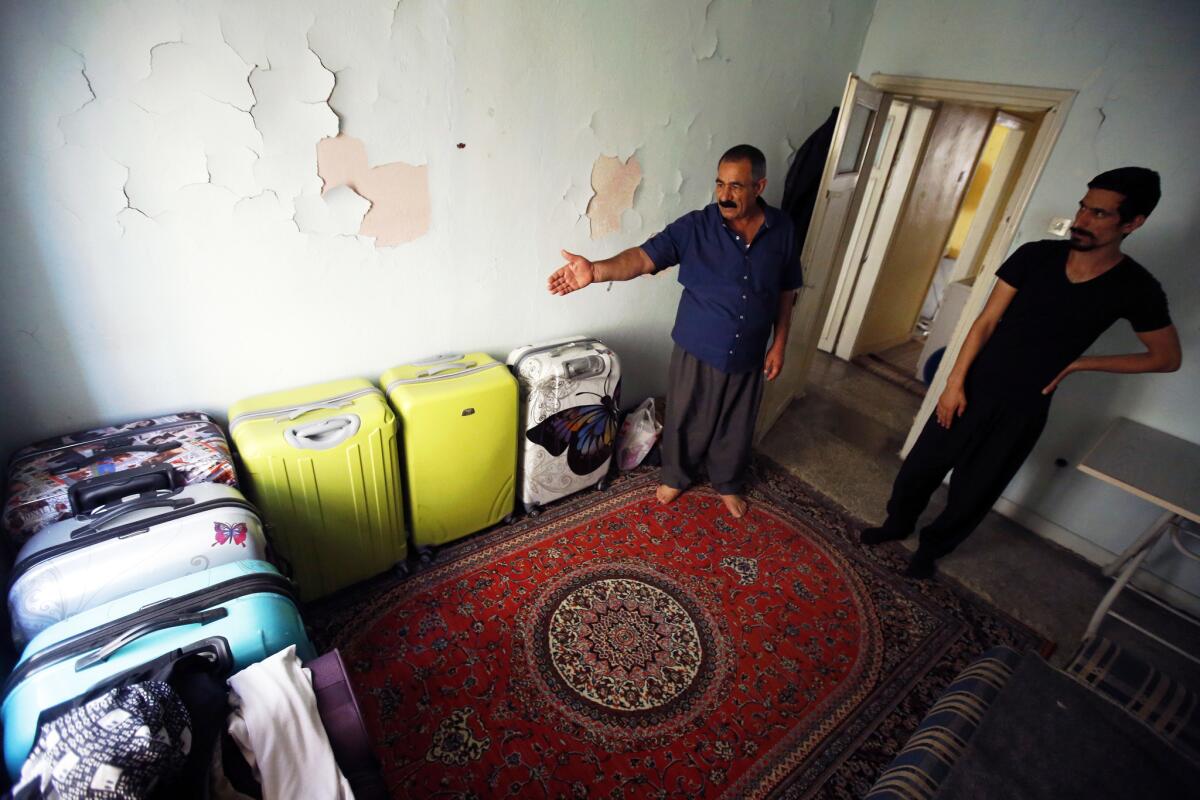
With a 10-hour time difference and more than 7,000 miles between them, Fanoos has turned to social media to connect with her son. She watches his video postings on repeat.
“I miss the way he talks,” she says. “I look every day at his Instagram. I get happy when I look at it, but other times I get sad and I’m reminded at how far away he is.”
Sirvan grapples with his emotions on Instagram. Every few weeks, he uploads a collage of the Statue of Liberty in front of a waving American flag. But he also posts stories such as one in March after he’d dreamed of his dead father: “How do you deal with pain?” he asked his followers.
The day after Mother’s Day, he uploaded a photo from a year before, showing him with Fanoos and Delnia in the Kayseri apartment. “With love only for you,” it said in red text with pink hearts framing the picture.
Sirvan hasn’t yet been to tourist sites like Seattle’s Space Needle or Pike Place Market, but he’s found other spots that make him feel more at home. He recently made his first visit to DK, an Asian food market in Renton, Wash., that has a small collection of Iranian cookies and spices, and he allowed his Instagram followers to follow along through a broadcast.
The same day, he posted a shot of himself with the soccer team. While the rest of the men smiled, his expression was flat. For him, it was progress.
The caption said, “Had a good day with friends.”
More to Read
Sign up for Essential California
The most important California stories and recommendations in your inbox every morning.
You may occasionally receive promotional content from the Los Angeles Times.















